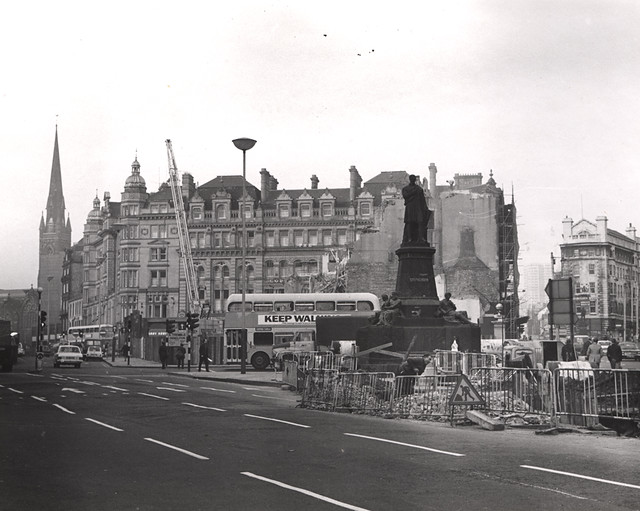Topics > Heritage Sites > Seaton Delaval Hall > The White Lady of Delaval Hall
The White Lady of Delaval Hall
Extract from: JOHN ROBINSON (1894), ILLUSTRATED HANDBOOK TO THE RIVERS Tyne ,Blyth,& Wansbeck; ALSO A GUIDE TO TYNEMOUTH, CULLERCOATS, WHITLEY, MONKSEATON, ST. MARY'S ISLE, HARTLEY, SEATON DELAVAL, BLYTH, NEWBIGGIN, WITH THE LEGENDS AND TRADITIONS OF THE COAST; AND A Glance Guide to Newcastle.
THE WHITE LADY OF DELAVAL HALL
The favourite haunts of visitors from the land of shadows are usually some old castle on the site of ancient battlefield; comparative modern buildings are not credited with ghosts and mysterious visitors. Seaton Delaval Hall is however an exception to the rule, for it has long been known that a "White Lady" keeps her melancholy vigils at a window in the east wing, looking- out for the return of her absent Lord. The story of her devotion has a delightful romance associated with it. Years ago, the present writer was told by an old lady who had occupied a position of honour in the Delaval family, the true story of the "White Lady of Seaton Delaval Hall." In the days when Seaton Delaval was the resort of the leading families in the North of England, as well as that of the fashionable, dramatic, and sporting world, an entertainment of more than usual grandeur was given by the noble owners of the hall, when all the world of beauty and of wit thronged down North to the entertainment of the famous Delavals. Among the numerous visitors there was one fair lady who accompanied a popular Duchess. This young lady was acknowledged as being next in favour to the beautiful Sarah, the well-known daughter of Lord Delaval, as the reigning beauty. She was of noble family, but like a number of the leading families of the kingdom at that time, the Jacobite movement had ruined or banished them. This fair lady was therefore poor, and depended upon the Duchess for her present position; yet her presence at friends' houses was always welcome. The visit of the Duchess and her beautiful companion to Delaval Hall added therefore, greatly to the interest of the occasion, and for weeks the fair visitor was the idol of the company. Yet while she was always willing to join in anything suggested by any of the gentlemen, she could not prevent the company from seeing that she paid special attention to the wishes and tastes of the heir to the house of the Delavals, and joined in all the favourite pastimes of young Delaval. This similarity of taste, and frequent companionship between a lovely woman and a dashing Delaval, could have but one result, and it soon became known that the fair visitor and young Lord John we reengaged. The Duchess was delighted, and could not conceal her pleasure at the result, but not so was Lord Delaval, he was not satisfied, and gave signs of displeasure, not to the fair visitor, he was too gallant for that, but whenever the conversation turned into the topic, he skilfully changed the subject. The reason is not known. Some of the visitors thought it was because he had not been consulted, others that he wished his only son and heir to be allied to a more powerful and wealthy family
lt ended, however, in his giving orders for his son to immediately join his regiment in Lincolnshire, and not to return until he was sent for. The son obeyed, but not before he had pledged his love to the fair visitor, and declared that when hedid return she would be with him as his wife. He had not been gone many weeks when news came of his serious illness. Lord Delaval, who had imagined that absence from the famous beauty would cool the ardour of his son, soon forgot all idea of banishment; so that when the news of his son's illness reached the Hall, he immediately despatched messengers to convey home the sick youth. But, alas! the messengers only arrived at Lincoln to find the last direct male heir to the Delavals dead.
At Seaton Delaval, soon after the departure of young Delaval to join his regiment, the company gradually departed; but the health of the fair young beauty also began to create alarm, which necessitated the prolonged stay of the Duchess and her companion. Then the news of the sudden illness and death of the young Lord cast a gloom over the remaining company ;and where all a few brief weeks before had been pleasure and gaiety, was overshadowed by sorrow and dread. But it was the altered look and dejected appearance of the fair visitor which touched all hearts; even Lord Delaval, in the depths of his own sorrow, felt some comfort in trying to revive the drooping spirits of his fair guest ;but it was of no avail, her mind gradually began to wander. She was frequently seen looking from one of the windows in her room, and when questioned as to what she was looking for— her reply was always the same — " For the return of Lord John to his home." She could not be comforted, and at night when all was silent, save the distant roll of the sea, she would wander from her room to the windows which commanded the best view of the entrances from the avenue. Here she was frequently seen, dressed in white, gazing into the darkness, and wringing her hands in grief. But death put an end to her sorrowful vigils, and she was carried South to be buried in the last resting-place of her forefathers. Yet the memory of this faithful and beautiful lady is kept green by her form being seen at certain times of the year, gazing from the windows of the east wing of the Hall. While the memory of the last male heir to the Delavals is commemorated by the beautiful mausoleum which stands to the south-east of the hall. The story of their love will live as long as the name of Delaval is cherished by the inhabitants of the North of England, and the history of the "White Lady of Seaton Delaval Hall" is told. There is a tradition that the " White Lady" will continue to visit the Hall until an heir to the estate is born within its walls. Yet to this day the beautiful form of a lady in white can be seen, watching from a window for the return of the heir who shall return no more.
When the sun is sinking into the west, and casts a halo of glory around the tops of the Cheviots ;or when the full moon sheds her silvery light o'er the tall trees which guard the Hall, and casts the shadow of the Lady Chapel upon the south front of the ruins, if you look then you will see the " White Lady of Delaval Hall."
Next Section of this book: The Lady Chapel








